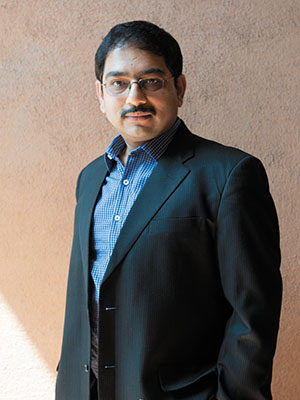
Mercedes India Ex-Sales Director on the Luxury Car Market
Debashis Mitra, former sales and marketing head of Mercedes India, tells Forbes India that luxury has multiple connotations in the market
Debashis Mitra
Age: 45
Education: BE from Jalpaiguri Government Engi-neering College, West Bengal; PG diploma in business management from IIM-Calcutta
Career: Started out as a senior sales engineer at Atlas Copco; worked with Hindustan Motors, Nissan, Toyota and Mercedes Benz
Last Position: Marketing & sales director at Mercedes Benz India
Q.You spent about five years at Mercedes Benz India. How do you look back at your stint?
A: I have been working for 22 years and over the past five years, I think I have seen an evolution of how the luxury industry moves. With hardly any models to talk about, luxury was assigned different connotations. Within luxury, there are so many sub-categories. And I have seen and been a part of the fantastic battle between the German players. What I learnt and enjoyed the most is my interaction with Daimler [German car manufacturer of which Mercedes is a division] headquarters and adopting a strategy for India. This is the best kind of learning I could have gone through since it is something I had never done. Laying down a clear road map for the organisation was the happiest part of my stint.
Q. How have you seen consumers understand the concept of luxury?
A: Luxury is not about leather, stitches or size. It is about going one level above. A car could run with basic safety features and still be perceived as something more. Everyday, every hour of our lives, we are all moving, so safety is the best luxury God has granted us. It is the most important part of the expensive and premium car segments. This relation has not set in well in the Indian market.
Q. The luxury car market in India has seen years of high growth and then a relative slowdown. How do you make a distinction between short-term and long-term targets?
A: It’s like sailing a ship into the sea knowing there will be thunderstorms. You should know how to sail through the stormy days, through the days where there’s a glacier waiting to hit you. You should have a focus on the cost side at any point in time. In the high rupee regime of India, a clear understanding of the cost side will keep your feet on the ground in an unstable, fluctuating market. When you’re in the growth phase, you should have an intuitive nature, an understanding of when the market is heading in the other direction. When we’re in our good days, we forget that the bad will come. Keeping an eye on the changing situation and being prepared is what a management leader should do.
Q. You have worked with the Germans and the Japanese. How do you relate the two experiences?
A: Mercedes as a brand is more maverick and innovative. Toyota has a brand that is more stable and solid. It is more of a PDCA [plan-do-check-act] model. Lot of time goes into planning, but the implementation part is less. And there are always options 1-2-3 ready. On Daimler, I’d say that planning is good but could have been better. On the German side, the action is more and the future is very open. There is a lot of positive energy and execution is very high.
(This story appears in the 28 June, 2013 issue of Forbes India. To visit our Archives, click here.)















